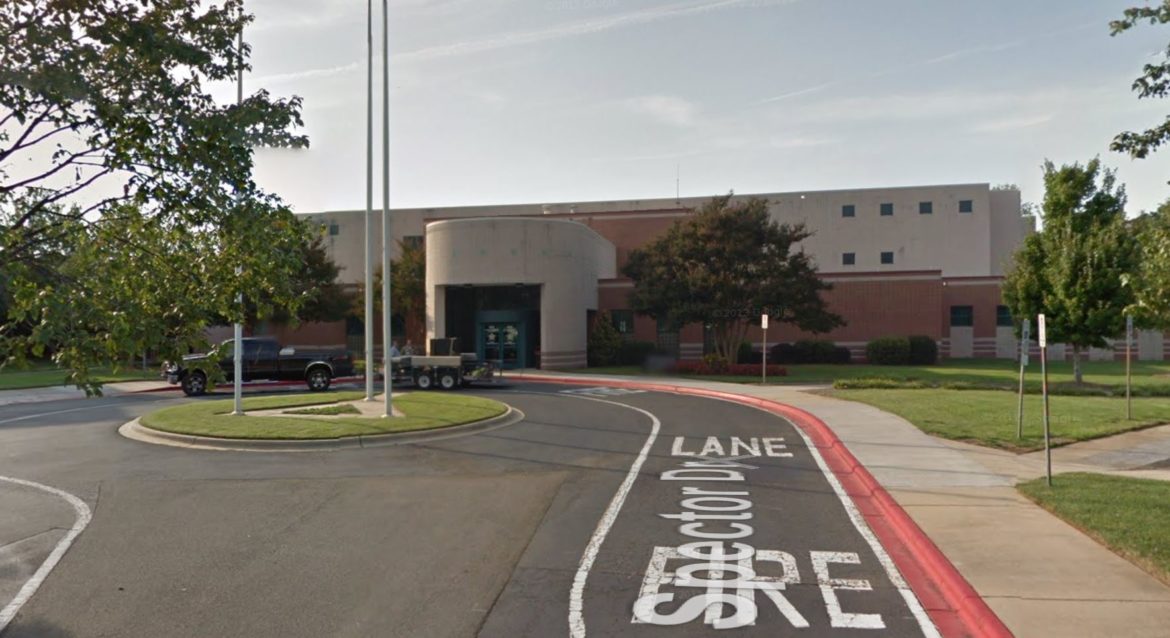When coronavirus blazed through Neuse Correctional Institution in Goldsboro, N.C., in mid-April, the North Carolina Department of Public Safety (DPS) tested everyone. At last count, the prison had 467 positive cases out of 701 men tested. One man died. Even more shocking than the 67% infection rate might be the fact that 98% of those who tested positive were at that point asymptomatic, according to DPS.
This indicates that limiting the spread of the virus in and out of correctional facilities cannot rely just on temperature-taking and selective testing of only those showing symptoms. Yet North Carolina doesn’t plan to systematically test young people in custody, but will instead wait for symptoms emerge.
Testing kits are available at each facility to test juveniles who are displaying symptoms, according to Diana Kees, deputy communications director for North Carolina DPS. If an outbreak occurs at a facility, additional testing would be performed, per the recommendation of the local health department.
So far, no youth held in custody in North Carolina has tested positive for coronavirus, and only one has been tested — a youth in Mecklenburg County Juvenile Detention Center.
As the novel coronavirus bore down in mid-March, DPS released about a quarter of the youth then held in juvenile detention facilities, where those accused of crimes are held pretrial. The state also released — either to “step-down” programs or to their homes — about 10% of the youth held in youth development facilities, where juvenile sentences are served.
Kees said it’s “not anticipated that many more juveniles will be released from detention prior to adjudication.”
Meanwhile, the state’s juvenile system had been handling an increased number of complaints in the previous months. That’s because, after the Dec. 1 implementation of the state’s raise the age law, it was newly adjudicating the cases of 16- and 17-year-olds.
In addition to the 18 youth released from youth development facilities, another six are being considered for release, Kees said.
On April 1, the Mecklenburg County sheriff’s office learned that a contract nurse with the Mecklenburg County Juvenile Detention Center had tested positive for COVID-19.
Three weeks later, the state’s association for workers at both juvenile and adult detention facilities announced it had secured 20,000 COVID test kits, enough to test any employee who wanted one.
“Our personnel are on the frontlines of this crisis. This is an important step in providing DPS employees with peace of mind," said Deborah Harney, chairwoman of the Select Committee on Prison Reform for the State Employees Association of North Carolina.
In at least 26 states, 352 juvenile facility staff had tested positive for COVID-19 as of Monday, according to The Sentencing Project. In 19 states plus the District of Columbia, 204 youth in custody had tested positive as of Monday.
New Jersey became the first state to say on April 28 it would test every youth in its custody, following demands from activists after 19 youths in state facilities tested positive.
DPS says it has brought in additional health care workers to train staff on coronavirus-related matters and has distributed washable masks to all employees and youth in the custody of juvenile justice.
“The juveniles’ cloth masks are laundered nightly. Juveniles are encouraged to wear the masks and maintain social distancing equivalent to or in excess of six feet,” Kees said.
Advocacy groups filed an emergency petition with the North Carolina Supreme Court on April 8 demanding the release of adults and youth held in custody during coronavirus. They wrote, “Moreover, because young people are more frequently asymptomatic carriers of COVID-19, an outbreak in the juvenile detention centers and YDCs [youth detention centers] across the state would be particularly difficult to contain, even while facility staff would continue to come and go, spreading the disease among the youth and in their communities." The case is pending before Wake County Superior Court Judge Vince Rozier.
Juvenile justice advocates say that in the absence of testing for youth in custody, DPS must release them.
“I think what needs to be done is releasing of enough youth so that they can be in compliance with CDC [Centers for Disease Control and Prevention] guidelines on social distancing,” said Ricky Watson, executive director of the National Juvenile Justice Network.
